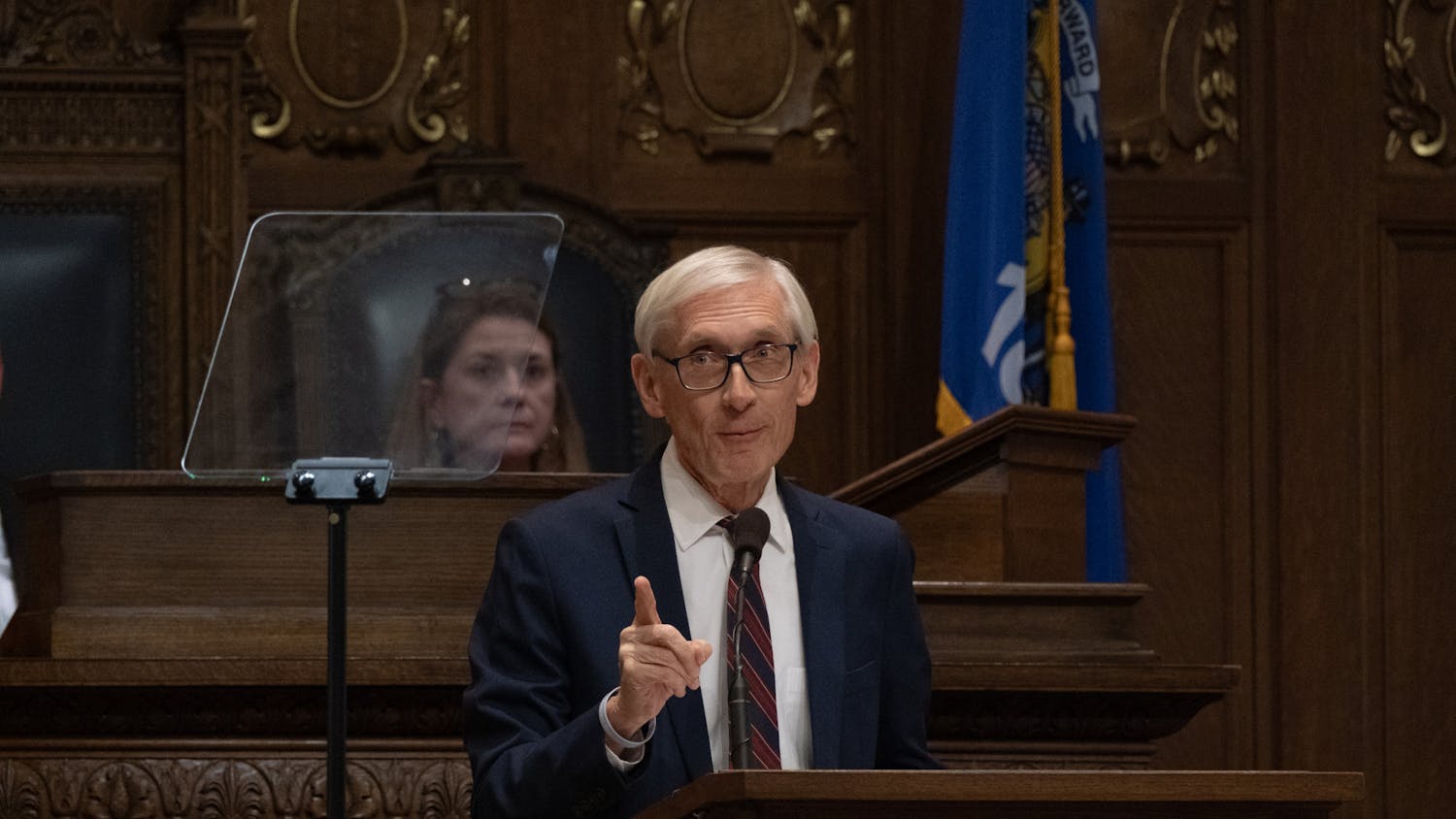What with teaching classes, grading papers, holding office hours, guiding freshmen students through their first college-level classes and managing personal course loads, the life of a teaching assistant can be grueling. TAs work long hours for little pay, yet somehow they manage the stress and help us manage ours as well. Essentially, the work of TAs makes the active academic life of a large university possible. In exchange for all this the state has decided to make TA's lives more difficult in the future by freezing their pay and scrapping the zero-cost health-care plan.
The Teaching Assistants' Association, the union and bargaining agent for TAs and project assistants, has been engaged in intensive contract negotiations for the last nine months but has made little progress due to the stubbornly regressive proposals of the state negotiating team. TAs and PAs are working under an extension of their 2003 contract. Under that contract TAs receive approximately $10,000 a year-not exactly bourgeoisie. The low wages, however, have been off set by two major benefits-a tuition waiver and zero-cost premium health care.
The state is proposing to axe one of those vital benefits-zero-premium healthcare. The state's proposal calls for a one-year wage freeze followed the next year by a 1.7 percent raise and a health-care plan calling for premiums of $9 a month for singles and $22.50 for families. This plan is disastrous for the university's TAs. A health care plan with premiums is not feasible for TAs at their current rate of pay, as premiums will increase at a higher rate than wages, resulting in a significant decrease in real wages over time. The pay aises"" also fall well below the rate of inflation and, coupled with the new health care costs, result in a 3.1 percent decrease in buying power.
The plan is disastrous not only for individual TAs but for the university as a whole. At present UW TAs already make 15-20 percent less than their counterparts at peer universities. Both John Chancellor Wiley and the faculty senate have come out against the new healthcare costs, stating that the state's proposals will hurt the UW's ability to hire top students.
The state's plan is disturbing not only because it callously disregards the needs of a vital section of workers, but because it is representative of a larger trend of balancing the budget on the backs of students, local governments and ordinary working people. The latest budget brought tuition hikes of 16 percent for in-state students and 4 percent for out-of-state, and next year promises to bring similar increases. Simultaneously state workers saw a significant increase in the cost of their health care-part-time workers now pay 50 percent more in premiums.
The rhetoric coming out of the capital is that it's hard times and we've all got to tighten our belts. However, while the wages of academics and the working class have been getting leaner, many sectors of the corporate world, mostly large campaign donors, have been doing quite well. Tuition has steadily increased since 1980. In fact, the corporate tax burden over the same period has significantly decreased; all sectors of the business community have continued to pay $839.2 million less, in real prices, than their share in 1979. Since 1993, these groups have contributed a combined $9.7 million to the Joint Finance Committee, state Assembly and state Senate. (from wisdc.org, www.legis.state.wi.us and SLAC).
Over the past nine months the TAA has taken action in both the negotiating room and the community. The lack of progress in spite of ongoing efforts has led the TAA to a historic point: last Thursday, for the first time in 25 years, the union voted nearly unanimously to consider beginning work stoppages and other disruptive actions. Members also voted to initiate a two-step process to move the union toward strike activity. Madison and the university community must come together to actively support the TAA in its contract battle and in any upcoming actions it chooses to take.
The TAA's fight to keep healthcare benefits is the most visible battle at the moment, but we are all being affected by a continuing string of irresponsible budget decisions. Students, educators and working people need to join together to fight economic decisions that lower the overall quality of state education, price many qualified students out of higher education altogether and force excellent TAs to move to other universities. This Thursday, the TAA and a wide range of student groups will host an undergrad/TA solidarity Festival on library mall. For more information and updates on TAA actions see http://taa-madison.org.
Kate McCormack is a senior majoring in international studies and psychology.





